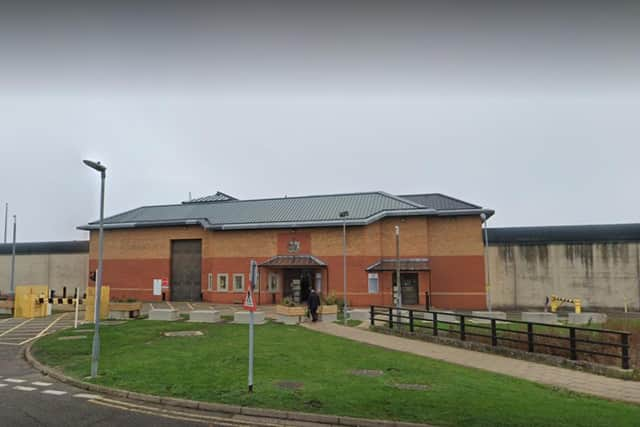Luton murderer died of ‘cocaine toxicity’ after being found unresponsive in prison cell
and live on Freeview channel 276
A convicted murderer from Luton died from cocaine toxicity after he was found unresponsive in his prison cell, a report has revealed.
The details of Waqar Younis’ death in 2018 have been published by the Prisons and Probation Ombudsman as part of an inquest into how he died. Mr Younis was sentenced to a minimum of 28 years in prison for murdering Micah Urquhar in September 2013.
Advertisement
Hide AdAdvertisement
Hide AdOn June 17 2018, the 23-year-old was found in his cell at HMP Whitemoor. A post-mortem examination found that he had swallowed several wraps of cocaine and died of ‘cocaine toxicity’. Drugs were also found in his clothing.


The medical examiner said: “Depending on the circumstances this may have been due to ‘body-packing’ or ‘body-stuffing’. In either case, the wrapping of the parcels often fail resulting in an abnormally large load of the drug entering the bloodstream. This results in rapidly accumulating levels which are often fatal even in persons who have become acclimatised to the drug. Given the high concentration of unmetabolized cocaine present it is likely death occurred shortly after the final consumption of the drug wraps.”
He was not known to have had a drug problem, but intelligence reports had implicated him in some suspicious activities at HMP Whitemoor, “none suggested drug taking or dealing in prison”.
The report by Sue McAllister CB read: “Staff who knew him well saw no signs that he was involved in such activity. We are satisfied that staff could not have predicted or prevented Mr Younis’ death.”
Advertisement
Hide AdAdvertisement
Hide AdIn the months prior to Mr Younis’ death, he was suspected of money laundering, was found in possession of a mobile phone and unidentified tablets were discovered in his cell. He had been moved to the Cambridgeshire prison in the hope that his behaviour would improve after several incidents at other prisons.
His personal officer said that “he was quiet and helpful, but easily led”. He believed that Mr Younis had been coerced into holding the mobile phone that was in
December 2017. A neighbouring prisoner said there had been nothing different about Mr Younis’ behaviour in the days leading to his death.
The ombudsman explained that there had been a delay of around three minutes before an ambulance was called when he was found in his cell. Sue McAllister said: “Although this is unlikely to have made a difference to Mr Younis, it could be crucial in a future emergency.”
Advertisement
Hide AdAdvertisement
Hide AdAn action plan from the report states that HMP Whitemoor’s governor should make sure that all “control room staff call an ambulance immediately when a medical emergency code is called”.
But the Ombudsman shared her concerns about drugs in the prison system. She said: “ I remain concerned about the ready availability of drugs in prison and the resulting number of deaths. I await, with interest, HM Prison and Probation’s national strategy which will aim to address this."
The prison paid for his funeral on June 20, and a memorial service was held on the premises later.
